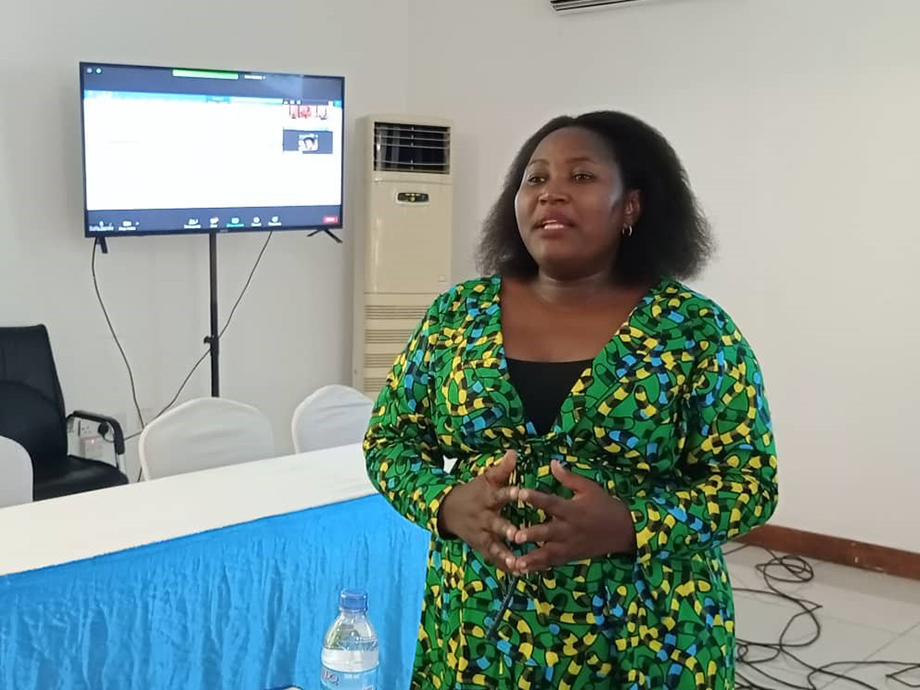Empowering women in small-scale fisheries in the United Republic of Tanzania
Of the 120 million people who work in capture fisheries and post-harvest sectors, nearly 50 percent are women according to most recent report on the State of Fisheries and Aquaculture from 2020. Yet, there is limited awareness of their work and contribution caused by engrained forms of discrimination and practices. It is also caused by a lack of data highlighting the participation of women at all levels of fish value chains and their representation in governmental fisheries management, research institutions and professional associations.
 |
| Kigoma, United Republic of Tanzania – women cleaning fish on the beach © FAO/Simon Maina |
The EAF-Nansen Programme recognizes the importance of ensuring gender equality, which is central to the mandate of FAO to achieve food security for all by promoting women’s empowerment throughout all areas of work and strengthening human and institutional capacities in partner countries. During the current phase that started in 2017, around 700 participants – 25 percent women and 75 percent men – from 39 countries have joined surveys aboard the state-of-the-art research vessel Dr Fridtjof Nansen, and even more people have participated in training courses and benefited from training materials, tools, and scientific publications.
One of the partner countries of the Programme is the United Republic of Tanzania, where fisheries play a major role in poverty reduction. Small-scale fisheries employ more than 200 000 full time fishers and engage over 4 million people in fisheries-related activities. However, despite socio-economic and cultural benefits, small-scale fisheries face many gender-related challenges.
 |
| Ms Upendo Hamidu, fisheries gender focal point at the Ministry of Livestock and Fisheries in the United Republic of Tanzania. ©Ministry of Livestock and Fisheries, United Republic of Tanzania |
“Our biggest challenges include gender-based violence and limited access to financial services, markets and technology for women and other vulnerable groups”, says Ms Upendo Hamidu, fisheries gender focal point at the Ministry of Livestock and Fisheries in the United Republic of Tanzania. Ms Hamidu further explains that: “There is also a lack of data on women in the fisheries sector, and we need to increase awareness of gender issues in Tanzania – both among fishing communities and decision-makers – to make a change”.
The Ministry of Livestock and Fisheries initiated a project dedicated to supporting the implementation of the country’s Small and Medium Pelagic Fisheries Management Plan in August 2019, with support from the EAF-Nansen Programme. The aim of the project is to ensure that small and medium size pelagic fisheries are managed more efficiently while creating sustainable benefits and mainstreaming gender in agreed activities. At the end of the project, it is expected that both human and institutional capacities for fishery management in the United Republic of Tanzania will be improved.
|
|
Furthermore, with support from FAO through both the EAF-Nansen Programme and the SSF Guidelines Project (“Capacity support towards the implementation of the Voluntary Guidelines for Securing Sustainable Small-Scale Fisheries in the Context of Food Security and Poverty Eradication in Tanzania”), the Ministry of Livestock and Fisheries established a ‘Gender Desk’ to complement other capacity building activities in the area of gender equality in the Ministry.
A three-day workshop was held in Morogoro, United Republic of Tanzania on 21-23 April 2021 to train the members of the ‘Fisheries Gender Desk’ and develop Institutional Gender Action Plan, including 18 participants from different divisions at the Ministry of the United Republic of Tanzania and other key stakeholders. Sessions included presentations, discussions on gender concepts and approaches, gender mainstreaming tools and ways to conduct impact assessments. During these sessions, participants were also informed about the gender issues in fisheries and aquaculture in the country, which allowed them to better understand the strengths and gaps within the sectors, set priorities and implement sustainable and equitable development programs, projects and policies.
“The workshop was very informative and a real eye-opener because I gained knowledge on several gender concepts and I was equipped with gender mainstreaming tools such as developing a gender responsive budget”, said workshop participant Ms Emanuela Mawoko, Senior Fisheries Officer at the Ministry of Livestock and Fisheries in the United Republic of Tanzania.
All in all, the workshop highlighted the importance of small-scale fisheries and the need to boost gender equality within the fisheries sector – from fish landing sites to the ministry level – through the establishment of the ‘Fisheries Gender Desk’ and the finalization of a specific ‘Gender Work Plan’ for further implementation by the Ministry.
With valuable contributions and results by the workshop participants, work will continue to ensure that resources are mobilised to have the ‘Fisheries Gender Desk’ fully established by July 2021 and that the ‘Gender Work Plan’ is implemented, according to the new ‘Gender Action Plan’, by the Ministry. Ultimately, the aim is to empower women in the fisheries sector and ensure that violence against women, children, people with disabilities and elders in fishing communities in the United Republic of Tanzania is reduced by at least 50 percent by 2023.
Workshop report will be available soon.
Useful links
- The EAF-Nansen Programme Gender Strategy
- SSF Guidelines: Gender Equity and Equality
- The State of World Fisheries and Aquaculture 2020 (SOFIA)
For more information:

